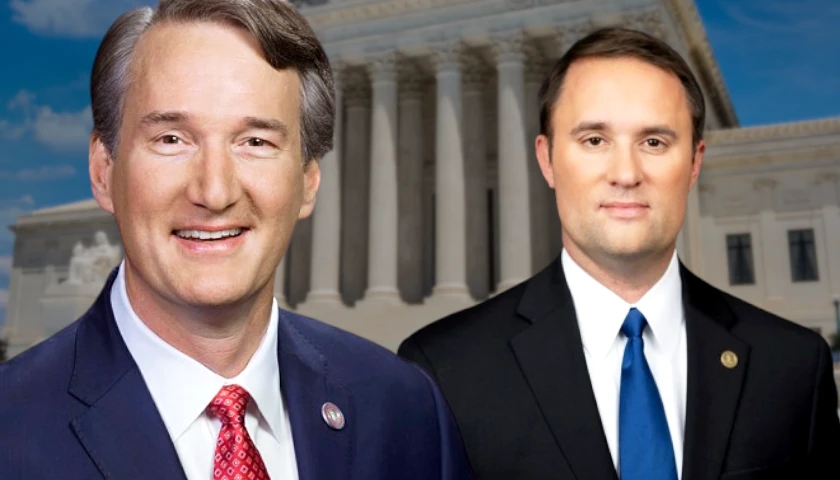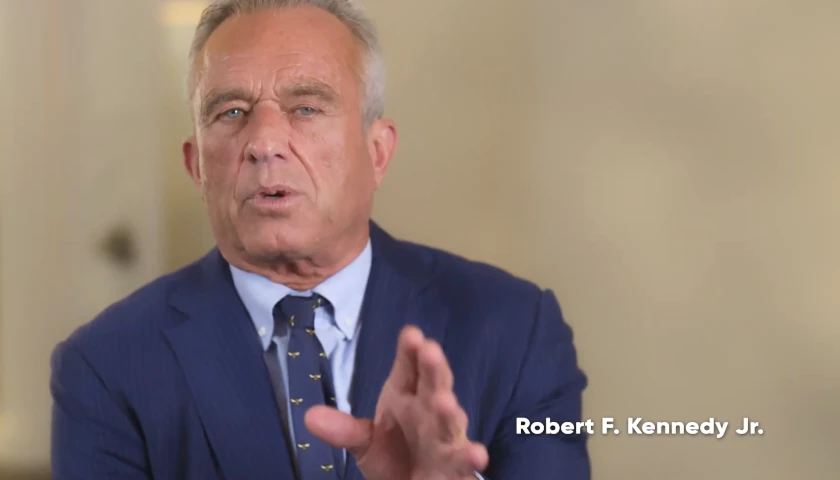Arizona Representative Paul Gosar (R-AZ-04) introduced a resolution of inquiry Tuesday directing U.S. Attorney General Merrick Garland to provide the House of Representatives with a copy of the affidavit related to the August 8 raid on former President Donald Trump’s residence.
“Attorney General Merrick Garland engaged in a blatant attempt to persecute a political adversary when he authorized the raid on the residence of former President Trump. Through this action, he has endangered, compromised, and undermined the justice system of the United States,” Gosar said. “The real reason that the Department of Justice is refusing to release the affidavit that supposedly justified the raid is because it was a political hit job and not justified. Attorney General Garland has lost the trust of the American people.”
H.Res.1325 specifies that upon the adoption of this resolution by the House, Garland has 14 days to submit the affidavit copy to the House.
Under clause 7 of House Rule XIII, the resolution will be given a special parliamentary status. According to Gosar, there are two paths H.Res.1325 can go down.
In the first path, if the judiciary committee has not reported the resolution back to the House within 14 legislative days, a privileged motion will be available on the chamber floor to discharge the committee from further considering the resolution. If the House agrees to the motion, the resolution would be taken from the committee and become available for consideration on the House floor.
However, if the committee reports the resolution within 14 days, no matter the favorability of the report, only a committee-authorized member can call up the privileged resolution on the House floor. In this case, by reporting a resolution, a committee can “prelude the privileged motion to discharge” and save the decision to call up the resolution for itself. Therefore, the committee-authorized member could block the affidavit’s release.
The Arizona Sun Times reached out to Gosar for more information on the resolution but did not receive any comment before publishing.
“The only semblance of respect remaining to this discredited and once-revered agency [FBI] is full transparency. Release the affidavit now,” Gosar said, concluding his statement.
As for the public release of the affidavit, a Florida judge wants to see it unsealed, but it is unclear how much information will be available. Axios reported that Magistrate Judge Bruce Reinhart previously gave the U.S. Department of Justice (DOJ) until August 25 to file a redacted version of the affidavit, which could still provide the public with new details on the investigation, including the probable cause for the search. However, the DOJ argued for the affidavit to remain sealed, as the instigation is in its “early stage,” and releasing the information “would provide a road map and suggest next investigative steps we are about to take.”
Yet, Reinhart filed a written order Monday reiterating his intent to unseal portions of the affidavit.
“Particularly given the intense public and historical interest in an unprecedented search of a former President’s residence, the Government has not yet shown that these administrative concerns are sufficient to justify sealing,” wrote Reinhart.
He acknowledged the possibility that “partial redactions” could be so extensive that there would be no meaningful information disclosed. Still, he would decide that himself after hearing further from the Government. As for why Reinhart’s reason for not unsealing the affidavit completely, he said with “the public notoriety and controversy about this search, it is likely that even witnesses who are not expressly named in the Affidavit would be quickly and broadly identified over social media and other communication channels,” potentially leading to harassment or intimidation.
– – –
Neil Jones is a reporter for The Arizona Sun Times and The Star News Network. Follow Neil on Twitter. Email tips to [email protected].









